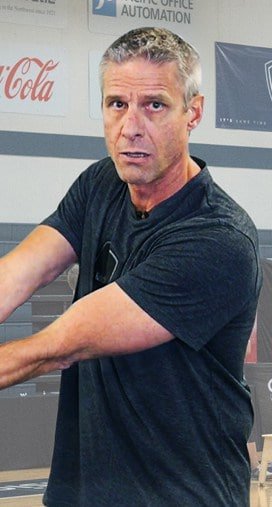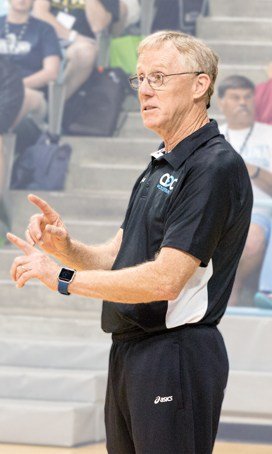

Jim Stone | USA Volleyball National Youth Team
As coaches, we often question if the values we encourage and preach will last beyond the athletic career of a player.
Discipline. Work ethic.
Dealing with disappointment.
Being a good teammate.
All of these are critical to team and individual success on the court, but I have always wondered just how much they benefit the athlete outside the athletic arena.
Not long ago, I had the good fortune to meet a former player for lunch. She had been a non-starting captain, an indicator of leadership skills that overshadow on-court abilities. She had always exhibited the drive, determination and motivation to excel in any venture. This is someone who completed the Cleveland Marathon on a Sunday, then attended a team strength training session at 7 the following morning. Suffice to say, she demonstrated exceptional traits and seemed destined for success.

Our reunion was enjoyable. We shared memories and laughs as she told stories that I’m certain contained a few embellishments. The next day, I received this note from her:
Thank you for taking time to meet with me in Denver. I thoroughly enjoyed catching up, and our conversation made me reflect on why my experience playing volleyball was valuable and how I still use what I learned all those years ago.
- First, extended periods of hard work allow one to connect to self and others. Hard work is a process that involves struggle, failure, success, elation, accomplishment, decision making, doubt, joy, thought, reflection and communication. It is a playground where we test our ability to cope with the skills we have and obtain new ones.
- Second, the drill that I hated was exactly what I needed because I could hate something and still find my way through it. This is called being an adult. I have been up at all hours of the night with my children, had a job I didn’t enjoy, lost someone close to me, seen tragedy, and failed miserably. But eventually that drill ends and the next time I find myself in similar circumstances, I do better.
- Third, leadership takes many forms. You can be a leader because you are simply great at what you do, which has never been the case for me. Also, you can be a leader quietly by observing what needs to be done and doing it. You can be a leader when you know what you are good at and work hard to become great at it. Finally, you can be a leader when you recognize what someone else is good at and encourage them to be great at it.
- Fourth, be humble. No matter how good you are, there is or will be someone better. You will never know all there is to know about anything. In fact, the more you learn, the more you understand how little you know.
- Finally, never compromise your character. People offer many lovely things, including money, in exchange for poor decisions. When you know how strong you are, how to work at grueling tasks, and how to enjoy the outcomes, you won’t be sold on decisions that are not in your best interest. I could go on, but these are the things that come to mind tonight. They are the things I am grateful to you for offering me the chance to learn.
There may not be a definitive study that traces the positive impact of athletic participation, but testimonials such as this are great examples of why coaches should encourage their players to strive for excellence. Dare them to pursue greatness and take on all the inherent challenges that go with it. The compensation for your efforts may not be in wins or championships. But perhaps 20 years from now, you’ll get the warm feeling of having impacted somebody’s life in a positive manner.
Jim Stone coached the Ohio State women's volleyball team for 26 years and is currently head coach of USA Volleyball's Youth National Team. He is a contributing editor at Art of Coaching.



